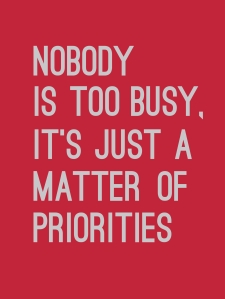Reading through Alexander Russo’s new blog, “The Grade,” I happened on an interesting blog post about The Washington Post’s blog The Answer Sheet by….Valerie Strauss. He writes:
She doesn’t write very much of her own commentary, they say. She can’t be both a columnist/blogger who traffics in opinion and commentary and also take/get assigned straight news stories, they say. Her reported pieces aren’t well-reported. And most of all: What she does post is pretty much unrelentingly critical of reform ideas like charter schools and test-based accountability.
Now granted, the complaints are mostly coming from reform advocates whose views aren’t frequently found on Strauss’s staunchly critical education blog. Or they’re from education journalists who are competitors of some kind. So all this is all to be taken with a grain of salt. But the list goes on and on, and the behind-the-scenes conversations with editors and ombudsmen I’ve heard about are pretty much endless.
I just assumed she was busy, but I tweet to her every day and have written extensively about an interview she “presumably” did with Anthony Cody in these posts:
Cody denies progress to advance his agenda
Anthony Cody, can you look a child in DC in the eyes and tell him that his progress is unrecognized
Granted it was Cody’s interview, and if anyone were to respond it would be him, and he has to an extent, but she never has made a peep, ever. And I’ve even gotten John Thompson to challenge me, I’m not a nobody! 🙂
But this blog post of Alexander’s just makes a lot of sense from my experience with the blog.
Alexander goes on:
This might not be the biggest or deepest critique of the work Strauss does and her Post editors allow. My main issue with her blog is that it doesn’t seem to offer readers an honest, somewhat balanced assessment of the big education issues that are being debated, or isn’t balanced with another blog so that readers of the Post can at least see two sides of a discussion. Oh, and it annoys me to no end that Answer Sheet blog posts overwhelm regular reported news stories on the site’s education page and on Feedly as if blog posts and reported news are the same thing. But let’s save all that for another time, shall we?
Yes, yes please write about something other than the far left leaning wing of the Democratic Party. I basically don’t read her material because I know it’s all over the edge and I’m not likely to agree.
Alexander goes on to discuss the world of bylines in the journalism world (and I have to say he did very well by me as a writer or news clipper making me a contributor and my name would be on the morning news) but my biggest pet peeve is this which he brings up later – her lack of accountability:
Issue number two related to the byline is the accountability issue. When there’s heat or pushback on what she’s posted under her byline, Strauss seems like she doesn’t want anything to do with it. In such situations she wants it known that she’s just the person who assigned or accepted the outside contribution. Then, she’s just the editor. But she still gets a byline.
The most recent example of this is a May 15 post Strauss published taking on Deepak Chopra’s work, written by Steven Newton. The headline is “Scientist: Why Deepak Chopra is driving me crazy.” The byline is, as usual, “By Valerie Strauss.” But two paragraphs in, Strauss hands it over to Newton.
The post generated nearly 50 comments and some attention on Twitter, including this hostile/polite tweet from Chopra’s account on May 18 addressed to Strauss and sent to his 2.44 million followers:
Dear @valeriestrauss – I responded to your ad hominem blog on me in the Washington Post in the comments section. Regards
— Deepak Chopra (@DeepakChopra) May 18, 2015
Strauss published a follow-up piececomplaining that Chopra’s email and Tweet were misguided: “He said it was written by me. He didn’t mention that Newton actually wrote the piece.”
To recap: Strauss published a piece under her byline. Chopra responded to her Twitter handle. But Strauss doesn’t feel like the responsibility for the post is hers.
Ah well, didn’t like her before and have zero reason to like her now. Too bad because I generally like the WashPost.



 ‘ve mentioned Ohio and California. What about all the other charters? Were those the only ones you can find that were under performing? I wish I could point to only 2 states where traditional public schools were underperforming – unfortunately that’s not the case. What about KIPP school? Democracy Prep? Big Picture Learning Schools? We have some stellar charters here in GA – Drew Charter and Ivy Prep.
‘ve mentioned Ohio and California. What about all the other charters? Were those the only ones you can find that were under performing? I wish I could point to only 2 states where traditional public schools were underperforming – unfortunately that’s not the case. What about KIPP school? Democracy Prep? Big Picture Learning Schools? We have some stellar charters here in GA – Drew Charter and Ivy Prep.